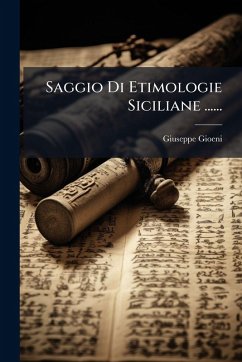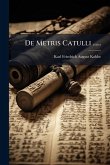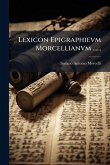Saggio Di Etimologie Siciliane by Giuseppe Gioeni is a scholarly exploration into the etymological roots of the Sicilian language. This essay provides a detailed analysis of the origins and evolution of Sicilian words, offering valuable insights into the linguistic history of the region. Examining influences from various cultures and historical periods, Gioeni's work illuminates the unique characteristics of the Sicilian dialect and its relationship to other Romance languages. This volume is an essential resource for linguists, historians, and anyone interested in the cultural heritage of Sicily. It preserves a wealth of knowledge about the island's linguistic landscape and offers a fascinating glimpse into the historical forces that have shaped its language. Gioeni's meticulous research and insightful analysis make this a significant contribution to the field of etymology and a valuable addition to any collection focused on Italian regional languages. This work has been selected by scholars as being culturally important, and is part of the knowledge base of civilization as we know it. This work was reproduced from the original artifact, and remains as true to the original work as possible. Therefore, you will see the original copyright references, library stamps (as most of these works have been housed in our most important libraries around the world), and other notations in the work. This work is in the public domain in the United States of America, and possibly other nations. Within the United States, you may freely copy and distribute this work, as no entity (individual or corporate) has a copyright on the body of the work. As a reproduction of a historical artifact, this work may contain missing or blurred pages, poor pictures, errant marks, etc. Scholars believe, and we concur, that this work is important enough to be preserved, reproduced, and made generally available to the public. We appreciate your support of the preservation process, and thank you for being an important part of keeping this knowledge alive and relevant.
Bitte wählen Sie Ihr Anliegen aus.
Rechnungen
Retourenschein anfordern
Bestellstatus
Storno








